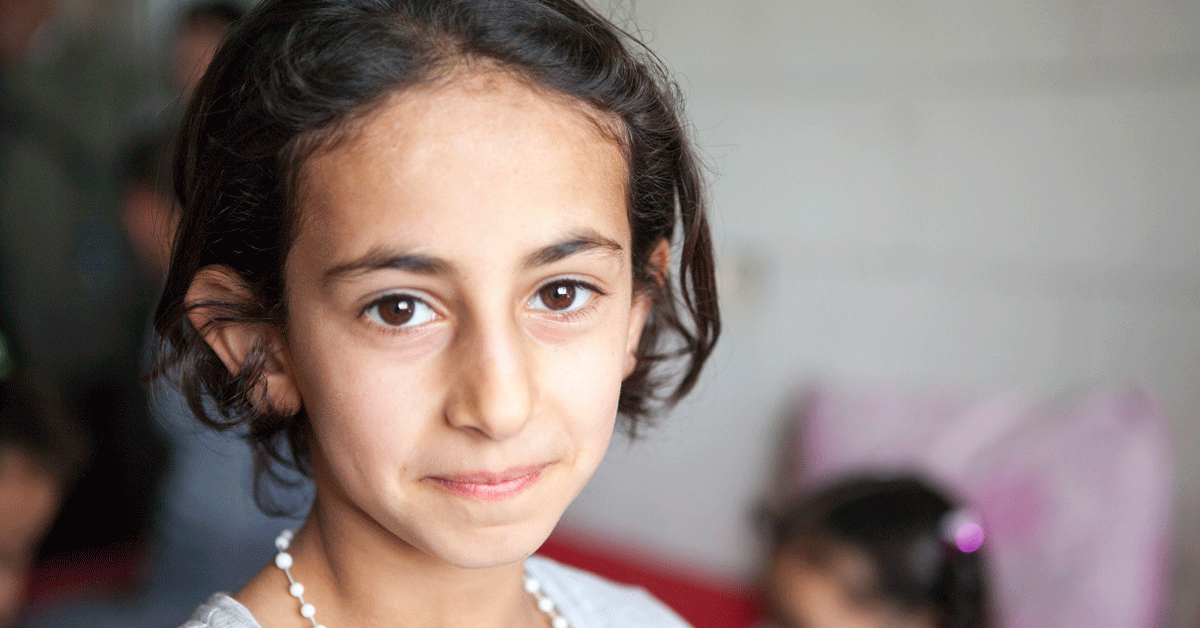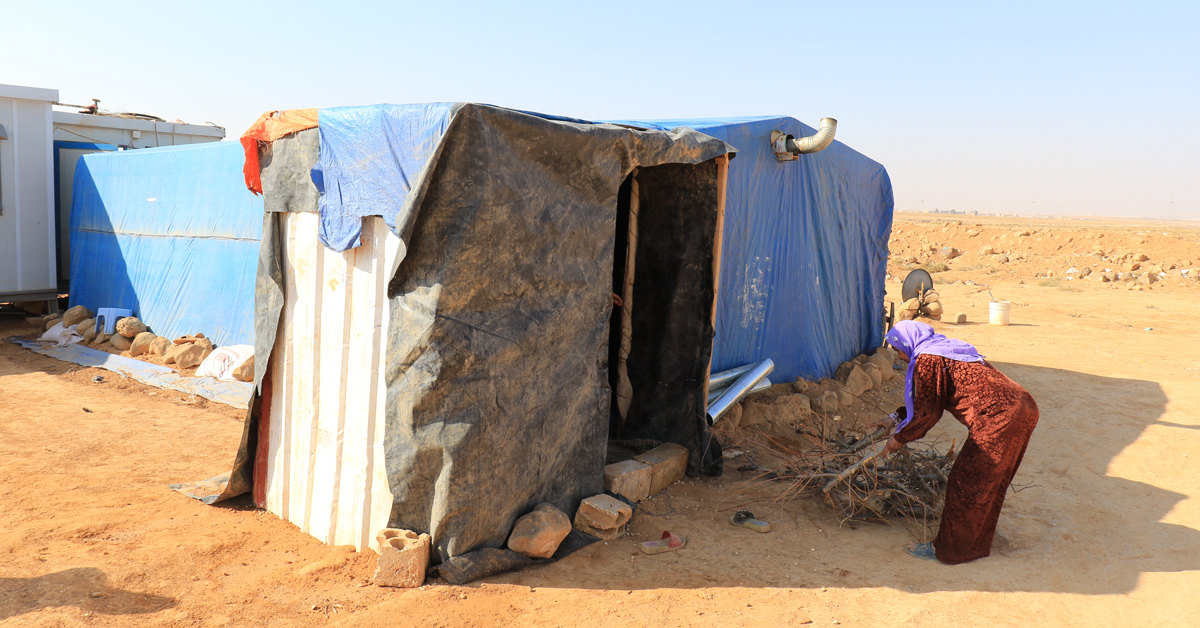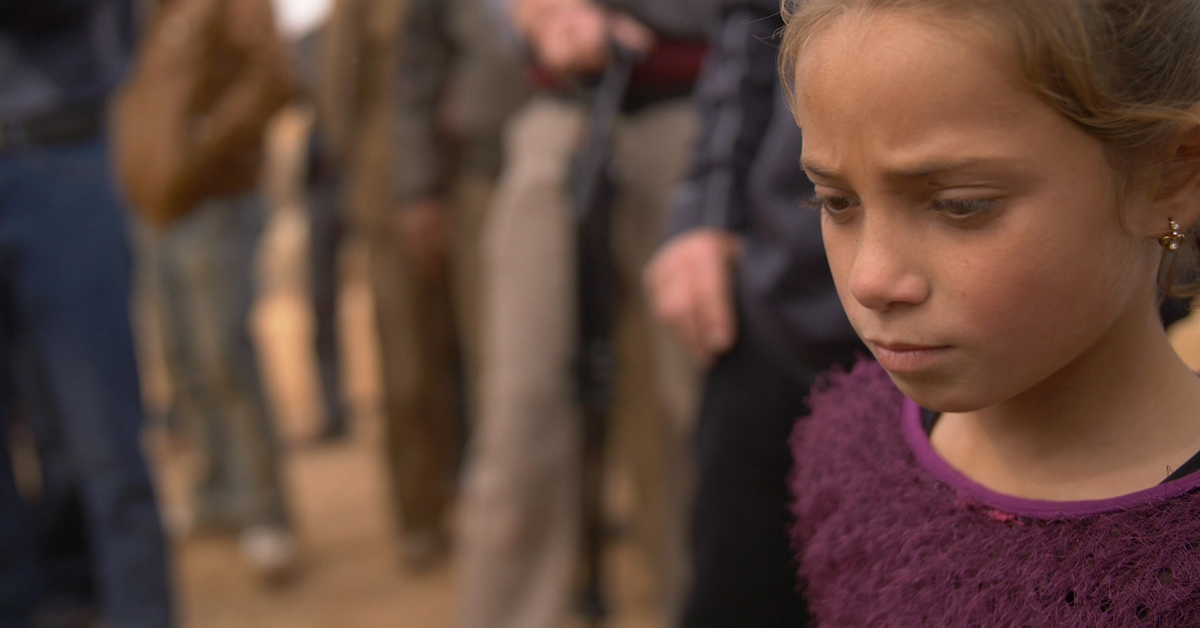When I was 12 years old, all I wanted was a pair of jeans from a certain popular store. That was what the cool kids were wearing, and like most pre-teens, I desperately wanted to be cool. I believed wholeheartedly those jeans were the key to elevating my social status.
When you’re 12, it’s hard to imagine anything more important than that.
But 12-year-old Amal isn’t concerned with jeans or her social standing. Like so many other refugee children, she just wants to survive to adulthood. Your $35 gift today will multiply 5X to provide $189 worth of food, medical care, and other lifesaving aid to a person like Amal.

We’ve changed Amal’s name to protect her. She’s currently living in Jordan, driven from her home in Syria the day bombs fell from the sky. Although Amal’s family made it out of town safely, they were forced to leave everything they knew and loved behind.
Can you imagine? One day you’re worried about school and grades and clothing choices and the next, you are running for your life. Becoming a refugee is difficult enough for adults, but it forces children and teenagers to grow up far too quickly.
By the time she becomes a teenager, Amal will have witnessed more horrors than most of us will experience in a lifetime. But without help, she might not live that long.
A day in the life of a child refugee
Amal wakes up every morning, shivering and coughing. Heat is expensive, and most refugee families cannot afford it. So Amal’s family does what they can to keep their tent warm during the brutal winter weather — they burn plastic bags.
Every week, the family gathers what trash they can find to burn. On a good day, they find things like bits of paper or scraps of wood; but, most days they are forced to use pieces of plastic and rubber.

The acrid smoke from burning plastic stings Amal’s nose, makes her eyes water, and causes her throat to ache. The fire is warm, yes, but the smoke is wreaking havoc on the family’s lungs. The fire will eventually die, but the damage it has caused will only get worse. A few minutes of warmth comes at a high cost … but it’s better than freezing to death.
Amal worries about her younger brother and sister. Exposure to the cold and harsh chemicals results in an extremely low immune system, so they are at greater risk of getting sick — illness that families like Amal’s cannot afford to treat. So Amal must ignore her cough and try not to think about what it means. She doesn’t have time to be sick. She has to work.
At her age, most kids in America are in middle school. This is the time when Amal’s classes should become more advanced, more tailored to help students pursue acceptance to a university or trade school. She should be dreaming about what she wants to be when she grows up. A doctor … a lawyer … or a teacher, perhaps. But Amal is not dreaming of a bright future. She is trying to survive the present.
School isn’t easy for refugee children. Elia, whose name we’ve changed for her safety, is a teacher in the camp and a refugee herself.
“These children face many challenges,” she said. “They are enrolled in lower grades than Jordanian children the same age. They are surrounded by younger children, and that is embarrassing for many of them. They are not treated the same as Jordanian children.”
It can be jarring, especially for children like Amal who will soon be teenagers.
Going to work at 12 years old
“They are treated like little children at school and like adults at home,” said Elia. “Anyone who is 12 or older is expected to work, and work like an adult. They have no option.”
This is particularly true when it comes to girls. The majority of parents believe their sons can benefit from more schooling — that one day they will use that education to get a good job. But daughters must stay home to work and hope their futures will be secured someday through marriage to one of those men who was lucky enough to finish his education .

So Amal no longer has the luxury of attending school. Instead, while her younger siblings go to classes, she joins her parents at a nearby farm. They are working there illegally since it can be almost impossible for refugees in the camps to get worker’s permits. The family needs the money, and they have no other choice.
It’s backbreaking work, but even with the extra hands, the family still doesn’t make enough to provide adequate food, medicine, and other supplies. Especially this year.
A harsh winter meant the farming season was shorter than normal, and Amal’s family was unable to put away much money. Amal looks for odd jobs around the camp, but so do thousands of other children her age. There simply aren’t enough jobs to go around.
At night, Amal dreams about her home in Syria. She remembers her room, her school, and her friends. She remembers a time when she wasn’t hungry, when she wasn’t cold. She remembers a time where she was carefree — but those days are long gone.
She asks her mother if they will ever return home. “It’s too violent,” her mother replies. They have heard from family members still in the area who tell them not to return.
Amal stokes the fire, adding more plastic bags. Her 2-year-old sister coughs — she’ll be sick tomorrow, and she’ll need medicine. Perhaps tomorrow Amal will find more work and make a little extra money.
She goes to bed — a 12-year-old little girl carrying the weight of the world on her shoulders.
Children like Amal need YOUR help
Unfortunately, Amal’s story is not unusual. More than half of the world’s refugees are children, and many will spend their entire childhood crammed inside refugee camps.
They have endured violence, abuse, and atrocities that you and I can hardly imagine. For one reason or another — war, violence, famine — their childhoods have been ripped away.
But you can do something to help. While you may not be able to restore what these children have lost, you can help a child survive. For just $35, you can help provide $189 worth of emergency food, medical care, hygiene kits, warm blankets, and more to a refugee in need.
Your gift will give a child like Amal hope for the future — hope that seems out of reach.



